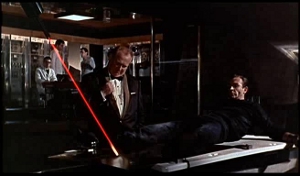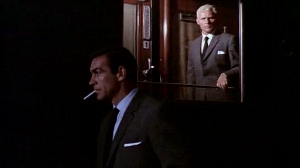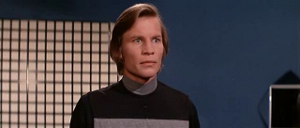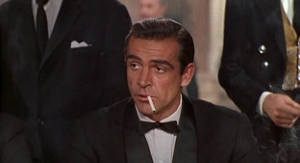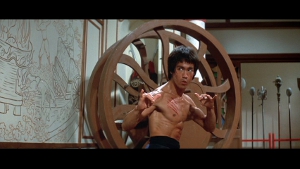by Chad Denton
This time the Doctor and his companions found themselves on a planet that appears uninhabited by intelligent life except for a single city. The Doctor sets out to explore, leaving behind Steven and Dodo, and finds himself taken to meet the Elders, who run the technologically advanced society within the city. Both the Doctor and the Elders are complimentary toward each other; the Elders claim they’ve observed some of the Doctor’s adventures and greet him as the Traveler, while the Doctor also recognizes the Elders’ planet and notes that they’ve achieved a great deal of scientific and cultural progress in a short span. However, the Elders, especially one named Jano, are elusive when the Doctor asks how their civilization evolved so quickly in the first place. Meanwhile an impatient Steven and Dodo set out on their own and find themselves stalked by people using Stone Age weapons. Before they can investigate further, they are also taken by the Elders’ soldiers to the city as honored guests and given a tour. It isn’t long, though, before Dodo stumbles across the answer to the Doctor’s questions: the Elders have been abducting people from the surrounding landscape and literally siphoning off their mental energy.
Finding his suspicions confirmed by Dodo, the Doctor rages against the Elders. Seeing a golden opportunity, Jano decides to subject the Doctor to the siphoning process, in spite of the objections of the scientists who have never subjected a strong intellect to the process before, and receive the Doctor’s intelligence himself. Unfortunately for Jano, he absorbs some of the Doctor’s personality as well. As for Dodo and Stephen, they escape from the city and are hidden in a cave system from the Elders’ troops by the “savages.” The companions learn that the “savages” used to be an advanced race with a sophisticated culture, but generations of being exposed to the process en masse has caused their civilization to regress. With their help, Dodo and Steven rescue a very weakened but still conscious and slowly recovering Doctor. Continue reading Trash Culture’s Dr. Who Reviews – The Savages (1966)

